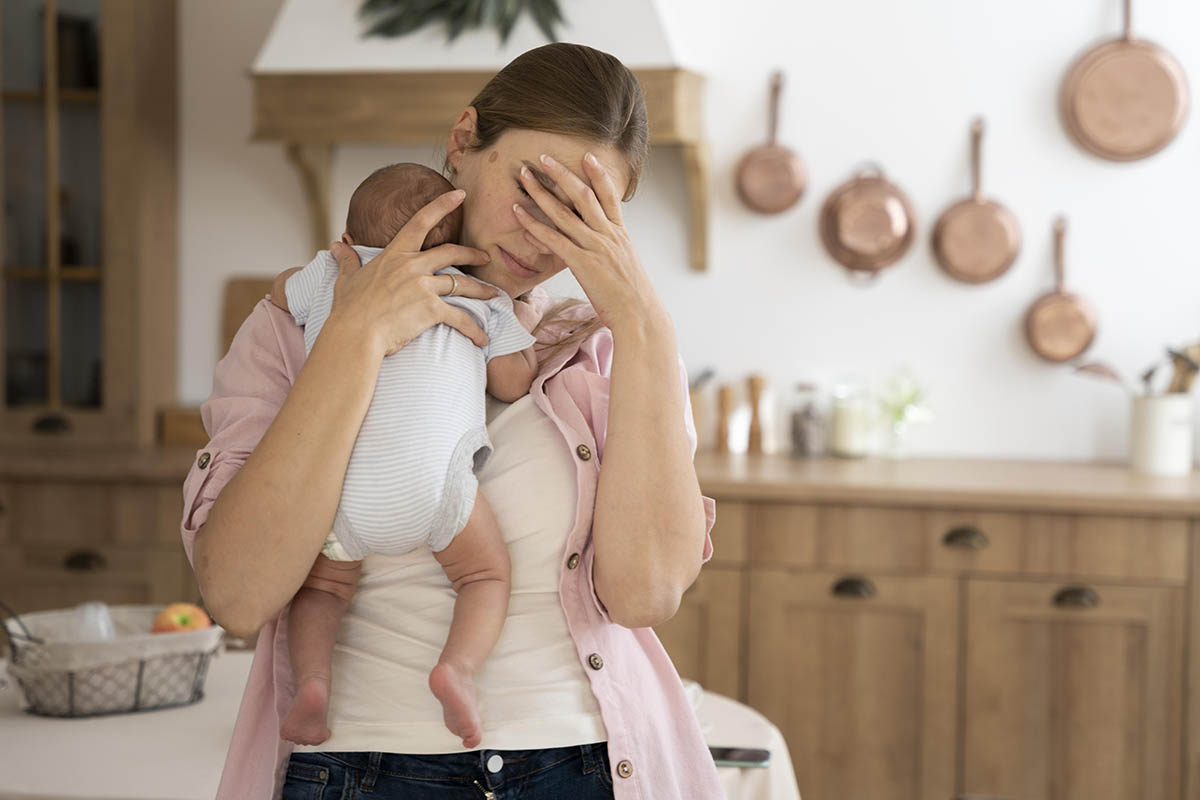
Photo Credit: Freepik.com
Therapy for Postpartum Concerns
The phenomenon of childbirth is very beautiful as it results in the beginning of a brand new life, as beautiful as it is there are some aftermaths of it as well. The process often takes a toll on the person who birthed the child, this toll is both physical and mental. Parenting is exciting but can also be arduous and overwhelming, worrying feelings and doubt are often a common occurrence post childbirth. The mental postpartum concerns can commonly require professional intervention from mental health professionals to try and help new mothers overcome these postpartum blues.
There are a wide range of mental postpartum concerns a new parent can face, the more common concerns are as such:
Postpartum Blues: It is not uncommon for women to experience the “baby blues” during the first days or weeks after delivery. These sad or blue feelings most commonly begin suddenly on the third or fourth day after delivery. Women tend to experience the symptoms of baby blues differently. The most common symptoms are feelings of disappointment, feeling overly sensitive about things, crying spells, irritability, anxiety etc.
Postpartum Depression (PPD): PPD affects approximately 10%-20% of new mothers. Common symptoms of Postpartum Depression can include sleep deprivation as a result of unrest during sleep, changes in appetite, lack of energy. New mothers may also experience alternating highs and lows, frequent crying, irritability and fatigue, as well as feelings of guilt, anxiety and the feeling of being incapable of parenthood. Postpartum depression is a result of hormonal changes that occur in the mother’s body during the 9 month long pregnancy period. PPD can also occur due to pre-existing mental health concerns such as the history of mental illnesses, and interpersonal issues like marital and family conflicts.
Postpartum psychosis: In very rare cases, 1 in 1,000 people can be affected by postpartum psychosis after childbirth. It is an extremely serious form of PPD and requires urgent medical intervention. The symptoms are often severe in comparison to common PPD severity and can last for a few weeks to several months. Symptoms include severe agitation, confusion, feelings of hopelessness and shame, insomnia, paranoia, delusions or hallucinations, hyperactivity, rapid speech or mania. Postpartum psychosis requires immediate medical attention since there is an increased risk of harm to both the mother and the baby. Treatment will usually include hospitalization, psychotherapy and medication.
Postpartum depression is treated differently depending on the type and severity of your symptoms. The scale of type and call for urgency starts from postpartum blues, being the lowest on the scale of severity and postpartum psychosis being at the top of the scale. Treatment options include anti-anxiety or antidepressant medicines, and different forms of psychotherapy. In the case of postpartum psychosis, the client may be hospitalized as they are at risk of harming themselves. Recognizing the need for help and seeking therapy is a crucial step for new parents experiencing postpartum concerns. Don’t wait until you’re so overwhelmed that it’s too difficult for you to pick up the phone to make an appointment. Reach out to mental health professionals who can make it easier to deal with postpartum concerns and better your quality of life.
